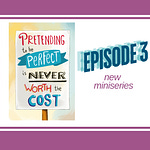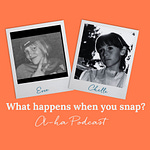Do you find it hard to trust others? Do you long to have closer relationships but find yourself overwhelmed with anxiety and fear when people want you to open up? Do you find being emotionally close with others confusing and exhausting?
Please know there’s nothing wrong with you.
“At times, we can all feel emotionally overwhelmed by our relationships and find our nervous systems melting into a dysregulated puddle,” explained Sue Marriott, a clinical social worker and co-author of Secure Relating: Holding Your Own In An Insecure World, when we interviewed her for this podcast. “The more trauma or loss you’ve experienced in your life, the more familiar this sense of feeling stressed and scrambled or scared and frozen during your interactions with others tends to be.”
Why does this happen to us?
As a child, if you experienced emotional or physical neglect, overwhelming feelings of danger, or a significant unprocessed loss and were left to navigate these feelings alone, it’s unlikely that learning how to express and manage your emotions was high on the list of survival skills you developed. As a result, your nervous system’s protection circuits - which can cause you to feel scrambled or frozen when you feel insecure or threatened by others - tend to be more sensitive than your connection circuits, which help you to embody trust and love.
“Trauma is, to the nervous system, what a concussion is to the brain,” said Sue. “A single concussion predisposes the brain to another one. Similarly, once your nervous system has experienced trauma, you’re more likely to have trouble processing the next overwhelming event, increasing your chance of developing ongoing symptoms.”
Does this mean our relationships are doomed?
Studies have found when you become aware that the fear and turmoil you’re experiencing in the present moment is rooted in past events, Sue explained it can be like turning on a neurological light that helps you to:
Recognize: Notice when your protection circuits have been triggered and you suddenly feel scrambled or frozen. Rather than rushing into action, this awareness takes you out of the immediate fear of the experience and allows you to become curious.
Reflect: What are you feeling? What triggered this feeling for you? As you reflect, imagine your wisest and kindest friend (real or fictional) sitting beside you, helping you to safely unpack what you’re experiencing. Acknowledge how unresolved trauma or attachment has shaped your current coping strategies and that you can change these patterns now you’re older and better resourced. This compassionate attitude slows down your protection circuits and fosters new learning opportunities to help you encode safer experiences rather than just re-experiencing the pain as it was.
Rewire: Let yourself embody the feelings of trust and love you’re providing to yourself. Breathe the feeling into each cell of your body. If you’re ready and it is healthy to do so, extend these feelings of trust and love to others by sharing what you’re learning, asking for help where you need it, and staying open to being in a relationship with them. If you’re not ready yet, honor this and extend your feelings of trust and love to a pet, a plant, or a favourite place in nature that helps you safely connect.
“When you have enough experiences of secure relating, you’ll find it easier to trust yourself and others,” explained Sue. “You begin to fill in your stories with more secure interpretations that enable your nervous system’s connection circuits to stay online.”
For more of Sue’s wonderful work, be sure to listen to her podcast Therapists Uncensored and grab a copy of Secure Relating: Holding Your Own In An Insecure World.
Please note: We are mindful that ‘girl’ and ‘woman’ are socially constructed ideas of gender that can fall painfully short of defining the fabulous complexity of who we each are. If these words resonate with part of how you have previously or currently identified yourself, we’d love to hear about your lived experiences.














Share this post